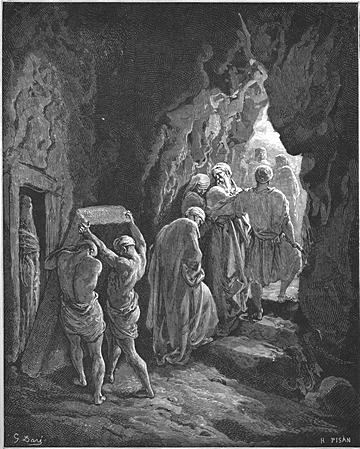1 pitaraḥ 3
1 he yoṣitaḥ, yūyamapi nijasvāmināṁ vaśyā bhavata tathā sati yadi kecid vākye viśvāsino na santi tarhi
In like manner, wives, be in subjection to your own husbands; so that, even if any do not obey the word, they may be won by the behavior of their wives without a word;
2 te vināvākyaṁ yoṣitām ācāreṇārthatasteṣāṁ pratyakṣeṇa yuṣmākaṁ sabhayasatītvācāreṇākraṣṭuṁ śakṣyante|
seeing your pure behavior in fear.
3 aparaṁ keśaracanayā svarṇālaṅkāradhāraṇona paricchadaparidhānena vā yuṣmākaṁ vāhyabhūṣā na bhavatu,
Let your beauty be not just the outward adorning of braiding the hair, and of wearing jewels of gold, or of putting on fine clothing;
4 kintvīśvarasya sākṣād bahumūlyakṣamāśāntibhāvākṣayaratnena yukto gupta āntarikamānava eva|
but in the hidden person of the heart, in the incorruptible adornment of a gentle and quiet spirit, which is in the sight of God very precious.
5 yataḥ pūrvvakāle yāḥ pavitrastriya īśvare pratyāśāmakurvvan tā api tādṛśīmeva bhūṣāṁ dhārayantyo nijasvāmināṁ vaśyā abhavan|
For this is how the holy women before, who hoped in God also adorned themselves, being in subjection to their own husbands:
6 tathaiva sārā ibrāhīmo vaśyā satī taṁ patimākhyātavatī yūyañca yadi sadācāriṇyo bhavatha vyākulatayā ca bhītā na bhavatha tarhi tasyāḥ kanyā ādhve|
as Sarah obeyed Abraham, calling him lord, whose children you now are, if you do well, and are not put in fear by any terror.
7 he puruṣāḥ, yūyaṁ jñānato durbbalatarabhājanairiva yoṣidbhiḥ sahavāsaṁ kuruta, ekasya jīvanavarasya sahabhāginībhyatābhyaḥ samādaraṁ vitarata ca na ced yuṣmākaṁ prārthanānāṁ bādhā janiṣyate|
You husbands, in like manner, live with your wives according to knowledge, giving honor to the woman, as to the weaker vessel, as being also joint heirs of the grace of life; that your prayers may not be hindered.
8 viśeṣato yūyaṁ sarvva ekamanasaḥ paraduḥkhai rduḥkhitā bhrātṛpramiṇaḥ kṛpāvantaḥ prītibhāvāśca bhavata|
Finally, be all like-minded, compassionate, loving as brothers, tenderhearted, humble,
9 aniṣṭasya pariśodhenāniṣṭaṁ nindāyā vā pariśodhena nindāṁ na kurvvanta āśiṣaṁ datta yato yūyam āśiradhikāriṇo bhavitumāhūtā iti jānītha|
not rendering evil for evil, or reviling for reviling; but instead blessing; because to this were you called, that you may inherit a blessing.
10 aparañca, jīvane prīyamāṇo yaḥ sudināni didṛkṣate| pāpāt jihvāṁ mṛṣāvākyāt svādharau sa nivarttayet|
For, "He who would love life, and see good days, let him keep his tongue from evil, and his lips from speaking deceit.
11 sa tyajed duṣṭatāmārgaṁ satkriyāñca samācaret| mṛgayāṇaśca śāntiṁ sa nityamevānudhāvatu|
Let him turn away from evil, and do good. Let him seek peace, and pursue it.
12 locane parameśasyonmīlite dhārmmikān prati| prārthanāyāḥ kṛte teṣāḥ tacchrotre sugame sadā| krodhāsyañca pareśasya kadācāriṣu varttate|
For the eyes of the Lord are on the righteous, and his ears open to their prayer; but the face of the Lord is against those who do evil."
13 aparaṁ yadi yūyam uttamasyānugāmino bhavatha tarhi ko yuṣmān hiṁsiṣyate?
Now who is he who will harm you, if you become zealous of that which is good?
14 yadi ca dharmmārthaṁ kliśyadhvaṁ tarhi dhanyā bhaviṣyatha| teṣām āśaṅkayā yūyaṁ na bibhīta na viṅkta vā|
But even if you should suffer for righteousness' sake, you are blessed. "And do not fear what they fear, nor be troubled."
15 manobhiḥ kintu manyadhvaṁ pavitraṁ prabhumīśvaraṁ| aparañca yuṣmākam āntarikapratyāśāyāstattvaṁ yaḥ kaścit pṛcchati tasmai śāntibhītibhyām uttaraṁ dātuṁ sadā susajjā bhavata|
But sanctify in your hearts Messiah as Lord; and always be ready to give an answer to everyone who asks you a reason concerning the hope that is in you, yet with humility and fear:
16 ye ca khrīṣṭadharmme yuṣmākaṁ sadācāraṁ dūṣayanti te duṣkarmmakāriṇāmiva yuṣmākam apavādena yat lajjitā bhaveyustadarthaṁ yuṣmākam uttamaḥ saṁvedo bhavatu|
having a good conscience; so that when they speak evil against you, they may be put to shame who slander your good manner of life in Messiah.
17 īśvarasyābhimatād yadi yuṣmābhiḥ kleśaḥ soḍhavyastarhi sadācāribhiḥ kleśasahanaṁ varaṁ na ca kadācāribhiḥ|
For it is better, if it is God's will, that you suffer for doing well than for doing evil.
18 yasmād īśvarasya sannidhim asmān ānetum adhārmmikāṇāṁ vinimayena dhārmmikaḥ khrīṣṭo 'pyekakṛtvaḥ pāpānāṁ daṇḍaṁ bhuktavān, sa ca śarīrasambandhe māritaḥ kintvātmanaḥ sambandhe puna rjīvito 'bhavat|
Because Messiah also suffered for sins once, the righteous for the unrighteous, that he might bring you to God; being put to death in the flesh, but made alive in the spirit;
19 tatsambandhe ca sa yātrāṁ vidhāya kārābaddhānām ātmanāṁ samīpe vākyaṁ ghoṣitavān|
in which he also went and made a proclamation to the spirits in prison,
20 purā nohasya samaye yāvat poto niramīyata tāvad īśvarasya dīrghasahiṣṇutā yadā vyalambata tadā te'nājñāgrāhiṇo'bhavan| tena potonālpe'rthād aṣṭāveva prāṇinastoyam uttīrṇāḥ|
who before were disobedient, when God waited patiently in the days of Noah, while the box-shaped ship was being built. In it, few, that is, eight souls, were saved by means of water.
21 tannidarśanañcāvagāhanaṁ (arthataḥ śārīrikamalinatāyā yastyāgaḥ sa nahi kintvīśvarāyottamasaṁvedasya yā pratajñā saiva) yīśukhrīṣṭasya punarutthānenedānīm asmān uttārayati,
This is a symbol of baptism, which now saves you—not the removal of dirt from the body, but an appeal to God for a good conscience, through the resurrection of Jesus (the) Messiah,
22 yataḥ sa svargaṁ gatveśvarasya dakṣiṇe vidyate svargīyadūtāḥ śāsakā balāni ca tasya vaśībhūtā abhavan|
who is at the right hand of God, having gone into heaven, angels and authorities and powers being made subject to him.





















